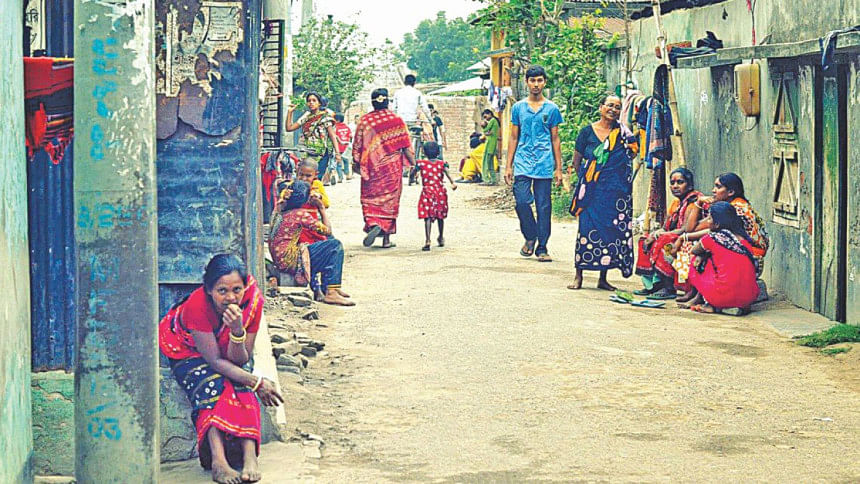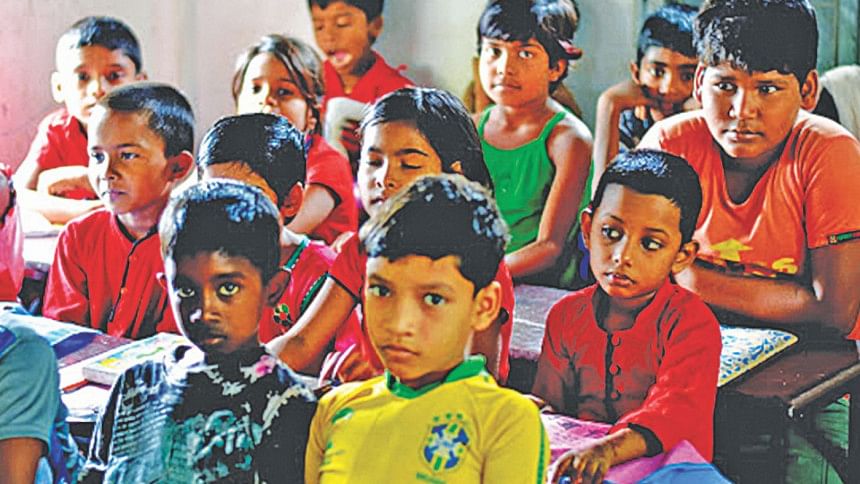PROJECT DALIT

In this issue of the Changemakers, we highlight two projects undertaken by Garbo Bangladesh Foundation, a Dhaka-based youth organisation, that works for the extremely marginalised groups in Bangladesh.
Ironically, people who labour to keep our society clean are considered 'unclean'. We often address them with the terms 'sweepers' and 'methors'. Also, most of us are still unfamiliar with the term 'Dalit'. In Bangladesh, this marginalised group of people who encounter discrimination based on their occupation belong to the 'Dalit' community.
To make a difference, Project Dalit began with a mission to educate the Dalit community of Bangladesh who are denied admissions in public schools. Founded by Nuheen Khan, founder of Garbo Bangladesh Foundation, the initiative has been funding a primary school for the Dalit community in Natore since 2013.

In 2012, while taking part in "UBC Development Action Plan Competition" in University of British Columbia, Nuheen and his friend Sami Muqeet submitted a proposal of using human faeces to produce biogas in Bangladesh. The proposal won the first prize and Nuheen came across the terms 'Dalit' and 'Harijon', used to refer to a community in South Asia who cleaned and disposed all kinds of waste for centuries. “To a foreigner, I would use the term 'untouchable' or 'outcasts', which they are more familiar with. People are often surprised we have caste system, but the sad truth is we do,” says Nuheen.
The journey of starting any development project encompasses a lot of hardships. In 2013, Nuheen took the job as a Lecturer in the Economics Department of a university to finance the school. Initially, it was hard for him to find good teachers to run his school in Natore. Along with proper supervision, funding the school was another challenge that he faced. Nuheen adds, “In hindsight, financing the school like this was not a smart move, but I learned my lessons about sustainable development work the hard way. Making mistakes is the best way to learn. My understanding about development has increased markedly over the years.”
The school used to run up to class 5, but from the start of this year it has scaled back to class 2 to save on cost. In the beginning, the school had 80 students. Currently, there are 50 students studying in the school.
The primary school provides completely free education from qualified teachers. Project Dalit has also run an adult school for the mothers of the school children. Since the female members of the community cannot even sign their names, the adult school has taught about 10 women how to write their names, Bengali and some math.
In addition to this, Project Dalit has conducted another programme called the Dalit Alternate Livelihood Programme, funded by Vancouver's Abdus Salam. About seven women have been taught how to sew by hired trainers, so that they can switch to another profession other than cleaning. In fact, three women have graduated from the programme and also did paid sewing work within the community.
A recent case study by Nuheen Khan and Dr Habiba Zaman, Professor at Canada's Simon Fraser University, on Bangladeshi Dalits is soon to be published. Canada's Hari Sharma Foundation has funded the study and contributed towards this purpose. Through the publication of the study, it is hoped that more attention will be drawn to the plight of the Dalits.

Having worked for the Dalit community in the past, the founder hopes to ensure a future for Project Dalit, before he leaves for Harvard next year. Nuheen expresses, “When I started my work here, I was attached to the project a lot. I did not think of an exit strategy. Every development project that is based on donation must have one. I am now trying to set up a profit primary school in Natore, which will cross subsidise the satellite schools such as those in Natore sweeper colony. The best students from the satellite schools will get fully funded schooling from the profit school."
Dalit communities exist all over the country. Even though there lies a long way to completely change the scenario of their lives, Project Dalit's initiative to work with the Dalit community in Natore does help us acknowledge the discrimination faced by the Sweeper Colony in our society. It does help us bring attention towards a group no one talks about.
The author is a student of English Literature at BRAC University.
Anyone interested to help Project Dalit continue its future goals can visit their page facebook.com/ProjectDalit

 For all latest news, follow The Daily Star's Google News channel.
For all latest news, follow The Daily Star's Google News channel. 



Comments